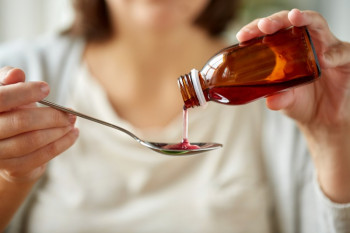Is Hibiscus Tea Safe With Lisinopril?
In our latest question and answer, our pharmacist discusses the safety of combining hibiscus tea with lisinopril.

Question
Does hibiscus tea interact with 10mg of lisinopril?

Answered by Dr. Brian Staiger, PharmD
Medical Content Reviewed By HelloPharmacist
Staff
Last updated Jun 15, 2025
Key points
- Hibiscus has the potential to lower blood pressure and may interact with medications like lisinopril, possibly causing an excessive drop in blood pressure due to combined antihypertensive effects.
- Monitoring for side effects, such as dizziness, and closely tracking blood pressure is very important when combining lisinopril with hibiscus. Additionally, always be sure to speak with your doctor before starting any new medications or supplements.
Answer
Thank you for reaching out!
While I couldn't find specific research assessing the safety of combining hibiscus and lisinopril, several published studies have highlighted hibiscus's potential to lower blood pressure.
So, theoretically, there's a concern about combining hibiscus with medications that lower blood pressure, like lisinopril. The worry lies in the possibility of an excessive drop in blood pressure due to combined antihypertensive effects (which could increase the risk of side effects).
Blood-Pressure Lowering Effects of Hibiscus
Hibiscus extracts have demonstrated the ability to lower blood pressure in both individuals with and without hypertension (high blood pressure) in a number of different studies.
One such study, published in The Journal of Nutrition, investigated the antihypertensive effects of hibiscus tea on 65 'pre' and mildly hypertensive adults over a 6-week period.
The participants consumed 3 daily servings of hibiscus tea or a placebo. Results showed a significant reduction in systolic blood pressure with hibiscus tea compared to the placebo, particularly in individuals with higher baseline systolic blood pressure.
While there are a number of studies that report on the blood-pressure-lowering effects of hibiscus (like the one I linked above), we don't have a complete understanding of exactly how hibiscus works in this regard, or whether certain extracts may be more effective than others.
Several mechanisms through which hibiscus may lower blood pressure have been theorized though. For example, hibiscus may act as a diuretic (enhancing urine production and sodium and chloride excretion).
Other studies suggest it may inhibit an enzyme known as ACE (angiotensin-converting enzymes), and may cause direct expanding of blood vessels (vasodilation).
How to Manage the Interaction
If you're considering combining lisinopril with hibiscus, it's essential to be aware of the potential combined antihypertensive effects.
It is important to monitor yourself closely for side effects like dizziness, drowsiness, or lightheadedness, especially in the initial days of combining them. If you experience any concerning effects, consult your doctor immediately. Keep a close watch on your blood pressure as well to make sure it's not dropping too low.
I should note that the interaction between lisinopril and hibiscus might not necessarily be negative. It could lead to better blood pressure control, and reduce the need for prescription medication.
As always, be sure to talk with your doctor about any medications and supplements you are taking, and be sure not to make any changes to your regimen without discussing it with them first.
Final Words
Thanks so much for connecting with us and please feel free to reach back out anytime!
References
- Hibiscus sabdariffa L. tea (tisane) lowers blood pressure in prehypertensive and mildly hypertensive adults, PubMed
- The effect of sour tea (Hibiscus sabdariffa) on essential hypertension, PubMed
- The effects of sour tea (Hibiscus sabdariffa) on hypertension in patients with type II diabetes, PubMed
- Effect of Hibiscus sabdariffa and Zingiber officinale on the antihypertensive activity and pharmacokinetic of losartan in hypertensive rats, PubMed
- The efficacy of sour tea (Hibiscus sabdariffa L.) on selected cardiovascular disease risk factors: A systematic review and meta-analysis of randomized clinical trials, PubMed
-
 Dr. Brian Staiger, PharmD
Dr. Brian Staiger, PharmD
- 1886 views


